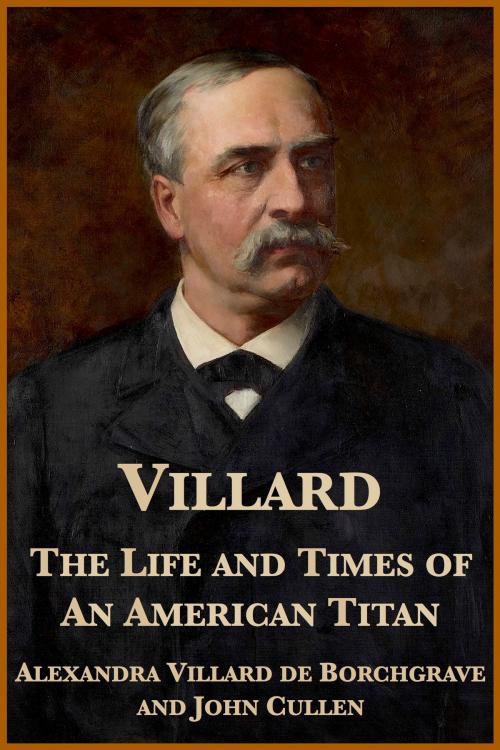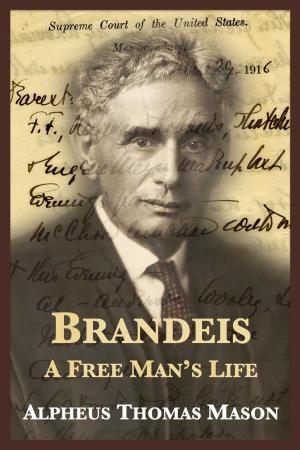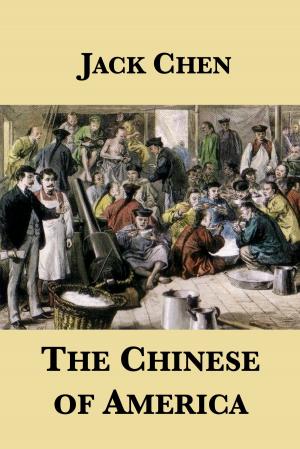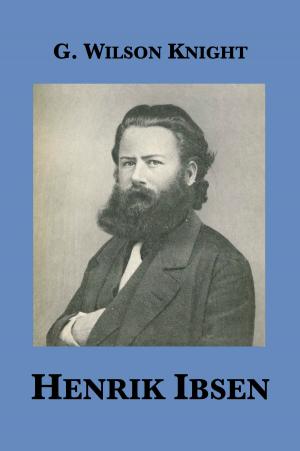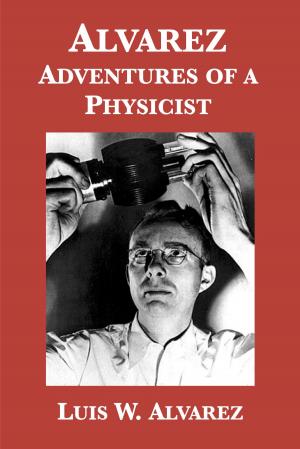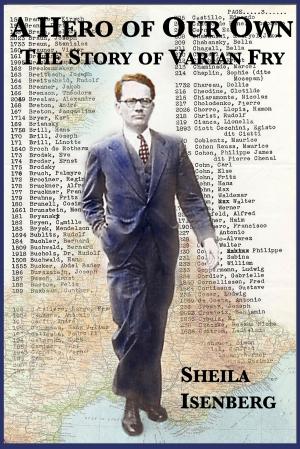Villard: The Life and Times of an American Titan
Biography & Memoir, Business, Nonfiction, History, Americas, United States, Civil War Period (1850-1877), 19th Century| Author: | Alexandra Villard de Borchgrave, John Cullen | ISBN: | 1230003298510 |
| Publisher: | Plunkett Lake Press | Publication: | June 28, 2019 |
| Imprint: | Language: | English |
| Author: | Alexandra Villard de Borchgrave, John Cullen |
| ISBN: | 1230003298510 |
| Publisher: | Plunkett Lake Press |
| Publication: | June 28, 2019 |
| Imprint: | |
| Language: | English |
Born Heinrich Hilgard in Bavaria, Henry Villard (1835-1900) emigrated to the United States at age 18 after a disagreement with his father, penniless, not speaking a word of English and without his parents’ knowledge.
Within five years, he had mastered the English language and was covering the events of the day for the nation’s top newspapers. Villard reported firsthand on the Lincoln-Douglas debates and from the front lines of the Civil War, filed graphic, hard-hitting reports that earned him the admiration of the newspaper community. His circle of acquaintances included President Lincoln, General Grant, and the famed abolitionist William Lloyd Garrison, whose daughter Villard married.
When the Civil War ended, Villard’s penchant for risk-taking and adventure and his uncanny business acumen led him to become a restless innovator, breaking new ground in many areas. In journalism, he launched the first news syndicate in the United States; in the world of finance, he was a pioneer of venture capitalism and one of the first to employ the leveraged buyout. He catapulted himself into the presidency of the Northern Pacific Railroad and shared with Thomas Edison the vision of an electrified nation. His investment in Edison’s electrical enterprises paved the way for Villard to mastermind the consolidation of what is now known as the General Electric Company. In 1883, triumphantly driving the last spike himself, he completed the nation’s second transcontinental railroad. Later that year a financial panic nearly ruined him, but within a few years he made a phenomenal comeback based on his faith in Edison and the future of electricity.
Drawing on unpublished letters, Henry Villard’s German and English memoirs, and other sources, this biography vividly recreates Villard’s times and tells the rags-to-riches story of a German immigrant who made major contributions to his adopted homeland.
“[Villard’s] story is worth telling and in this biography it is told well.” — The Economist
“The account here of young Henry’s ghastly first year as an immigrant is terrific, as good a piece of American biography as I’ve read. In general, you come away from the book with a much clearer idea of the Civil War as opportunity, not merely disaster, and as the watershed in U.S. history... Villard was an attractive character: optimistic, generous, affectionate. His attitudes toward slavery and female emancipation need cause his great-granddaughter no blush... [B]ecause we have so much information about Henry Villard [...] he comes alive for us as no other businessman of his age.” — James Buchan, The Observer
“In their well-crafted biography, Alexandra Villard de Borchgrave and John Cullen lovingly recount the meteoritic rise of one of the nineteenth century’s most unsung business ‘titans,’ Henry Villard.” — Ryan J. Carey, Harvard Business School’s Business History Review
“An insightful, lively and much-needed biography...” — John M. Lindley, Ramsey County History
“Henry Villard is a name not widely known today, but a century ago this would not have been the case. Alexandra de Borchgrave’s and John Cullen’s biography of her greatgrandfather’s rise from penniless and prospectless young German immigrant to prominence and wealth has the fast pace and rich detail of a good novel and the meticulous research of a good history.” — Dr. Henry A. Kissinger
“Henry Villard’s great-granddaughter Alexandra de Borchgrave and John Cullen have brought us a fascinating, brisk, and judicious life of one of the most intriguing figures in American history. Villard is the story not only of one man’s heroic enterprise, but also of Abraham Lincoln, William Lloyd Garrison, and the Civil War, the rise of railroads, the contradictions of the Gilded Age, and New York’s arrival as a world-class city.” — Michael Beschloss, historian
“A spruce, engaging account of the life and services of one of the great public and private figures of our time. Anyone engaged with New York and American values in the past century should certainly read it. It will be time admirably spent.” — John Kenneth Galbraith, professor of economics, Harvard University
“A remarkable, illuminating portrait of one of the great figures of New York history. Superbly told. An important adjunct to the library of anyone who is interested in the history of New York City.” — George Plimpton, author; editor of The Paris Review
“The stirring saga of a truly remarkable man who enthusiastically embraced the challenges of his turbulent century. Immigrant, journalist, explorer, war correspondent, entrepreneur, tycoon, and visionary — Villard’s boundless energy, adventurous spirit, and courage in the face of adversity are an inspiration.” — Brian C. Pohanka, Civil War author and consultant to Time-Life Books’ The Civil War
“Alexandra de Borchgrave and John Cullen at last do justice to a forgotten giant of American journalism and finance. A Civil War correspondent who invented the news syndicate and knew and was admired by President Lincoln, he then entered the world of finance to tussle with the likes of J. P. Morgan in the building of American railroads, and the founding of what became General Electric. Almost ruined in the panic of 1883, he returned to rebuild his empire and regain his place both in business and society. It’s a great addition to the story of America.” — Walter B. Wriston, former chairman, Citicorp
Born Heinrich Hilgard in Bavaria, Henry Villard (1835-1900) emigrated to the United States at age 18 after a disagreement with his father, penniless, not speaking a word of English and without his parents’ knowledge.
Within five years, he had mastered the English language and was covering the events of the day for the nation’s top newspapers. Villard reported firsthand on the Lincoln-Douglas debates and from the front lines of the Civil War, filed graphic, hard-hitting reports that earned him the admiration of the newspaper community. His circle of acquaintances included President Lincoln, General Grant, and the famed abolitionist William Lloyd Garrison, whose daughter Villard married.
When the Civil War ended, Villard’s penchant for risk-taking and adventure and his uncanny business acumen led him to become a restless innovator, breaking new ground in many areas. In journalism, he launched the first news syndicate in the United States; in the world of finance, he was a pioneer of venture capitalism and one of the first to employ the leveraged buyout. He catapulted himself into the presidency of the Northern Pacific Railroad and shared with Thomas Edison the vision of an electrified nation. His investment in Edison’s electrical enterprises paved the way for Villard to mastermind the consolidation of what is now known as the General Electric Company. In 1883, triumphantly driving the last spike himself, he completed the nation’s second transcontinental railroad. Later that year a financial panic nearly ruined him, but within a few years he made a phenomenal comeback based on his faith in Edison and the future of electricity.
Drawing on unpublished letters, Henry Villard’s German and English memoirs, and other sources, this biography vividly recreates Villard’s times and tells the rags-to-riches story of a German immigrant who made major contributions to his adopted homeland.
“[Villard’s] story is worth telling and in this biography it is told well.” — The Economist
“The account here of young Henry’s ghastly first year as an immigrant is terrific, as good a piece of American biography as I’ve read. In general, you come away from the book with a much clearer idea of the Civil War as opportunity, not merely disaster, and as the watershed in U.S. history... Villard was an attractive character: optimistic, generous, affectionate. His attitudes toward slavery and female emancipation need cause his great-granddaughter no blush... [B]ecause we have so much information about Henry Villard [...] he comes alive for us as no other businessman of his age.” — James Buchan, The Observer
“In their well-crafted biography, Alexandra Villard de Borchgrave and John Cullen lovingly recount the meteoritic rise of one of the nineteenth century’s most unsung business ‘titans,’ Henry Villard.” — Ryan J. Carey, Harvard Business School’s Business History Review
“An insightful, lively and much-needed biography...” — John M. Lindley, Ramsey County History
“Henry Villard is a name not widely known today, but a century ago this would not have been the case. Alexandra de Borchgrave’s and John Cullen’s biography of her greatgrandfather’s rise from penniless and prospectless young German immigrant to prominence and wealth has the fast pace and rich detail of a good novel and the meticulous research of a good history.” — Dr. Henry A. Kissinger
“Henry Villard’s great-granddaughter Alexandra de Borchgrave and John Cullen have brought us a fascinating, brisk, and judicious life of one of the most intriguing figures in American history. Villard is the story not only of one man’s heroic enterprise, but also of Abraham Lincoln, William Lloyd Garrison, and the Civil War, the rise of railroads, the contradictions of the Gilded Age, and New York’s arrival as a world-class city.” — Michael Beschloss, historian
“A spruce, engaging account of the life and services of one of the great public and private figures of our time. Anyone engaged with New York and American values in the past century should certainly read it. It will be time admirably spent.” — John Kenneth Galbraith, professor of economics, Harvard University
“A remarkable, illuminating portrait of one of the great figures of New York history. Superbly told. An important adjunct to the library of anyone who is interested in the history of New York City.” — George Plimpton, author; editor of The Paris Review
“The stirring saga of a truly remarkable man who enthusiastically embraced the challenges of his turbulent century. Immigrant, journalist, explorer, war correspondent, entrepreneur, tycoon, and visionary — Villard’s boundless energy, adventurous spirit, and courage in the face of adversity are an inspiration.” — Brian C. Pohanka, Civil War author and consultant to Time-Life Books’ The Civil War
“Alexandra de Borchgrave and John Cullen at last do justice to a forgotten giant of American journalism and finance. A Civil War correspondent who invented the news syndicate and knew and was admired by President Lincoln, he then entered the world of finance to tussle with the likes of J. P. Morgan in the building of American railroads, and the founding of what became General Electric. Almost ruined in the panic of 1883, he returned to rebuild his empire and regain his place both in business and society. It’s a great addition to the story of America.” — Walter B. Wriston, former chairman, Citicorp
